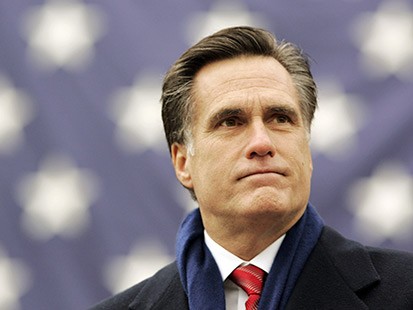Does it matter if a so-called “conservative” presidential candidate believes, and practices, “big government” liberalism on a state level? Do we believe that a governor, who may have worked to implement “big government” mandates and policies in his state, and excused them as “states’ rights,” will later be able to rein himself in and become a small government proponent and leader in Washington?
Frankly, I don’t see a heck of a lot of difference between the approaches taken by both Mitt Romney and Rick Perry when it comes to their respective “hot seat” issues, namely, mandated health insurance, for Romney, and immigration and mandated vaccines, for Perry.
In Tuesday night’s debate, when Perry challenged Romney on the Romneycare issue, Romney responded rather defensively- moreso than at any other time- that he wanted to insure all the children in his state because he cares. He attempted to contrast his caring with, in his view, Perry’s “lack of caring,” with figures reflecting the many children in Texas who are uninsured.
Romney also asserted, as he now often does in his defense of his signature healthcare legislation, that Romneycare was the right decision for his state, a decision to which his state was entitled to make, while Obamacare was a bad decision for the country. Surprisingly, there was no mention, during the debate, of the news that President Obama apparently consulted with Gov. Romney’s staff to obtain ideas for the implementation of Obamacare. Nevertheless, it sounds like Romney wants us to believe that caring is a good reason to support a “big government” mandate, albeit on a state level.
In the prior debate, Rick Perry gave his now infamous response when challenged on his support of instate tuition to children of illegal immigrants. His retort, “If you say that we should not educate children who have come into our state for no other reason than they’ve been brought there by no fault of their own, I don’t think you have a heart,” followed by his defense that his state legislature overwhelmingly passed the bill, i.e., states have rights, not only gave liberals more ammunition for the false theory that most conservatives lack caring; it also highlighted a question of whether a governor who has supported “big government” mandates or policy-making on a state level can lead a smaller federal government as a president. The question has clouded some conservatives’ views of Gov. Chris Christie as well as Romney, and may, a bit more surprisingly, apply to Perry as well.
Perry also stepped into the Gardasil vaccine executive order issue with the defense that he was trying to save young girls from cancer. Though he eventually apologized for issuing an executive order that essentially took a whack at parental rights, still it appears that Perry’s inclination is for government, on a state level, to be “big,” to show “caring” and “heart,” to save lives- all, perhaps, with well-meaning intentions, but also somewhat grandiose.
I understand and support “states’ rights” as provided for in our Constitution. However, big state government mandates and policies, based on the desire to show caring and heart sound like common liberal false excuses for more government intervention. Conservatives are often the most caring and heartfelt individuals, because they believe it is their personal responsibility, not that of the government- state or federal- to care for their neighbors and friends.
Although certainly Mitt Romney and Rick Perry are different in many ways, they both appear to have been lured easily into at least some big state government mandates and policies, ostensibly because they “care” about people, but, perhaps also because such “big government” behavior was politically expedient, and that they have personalities that are drawn to large scale interventions. Would either be true to a limited federal government as president?

COMMENTS
Please let us know if you're having issues with commenting.